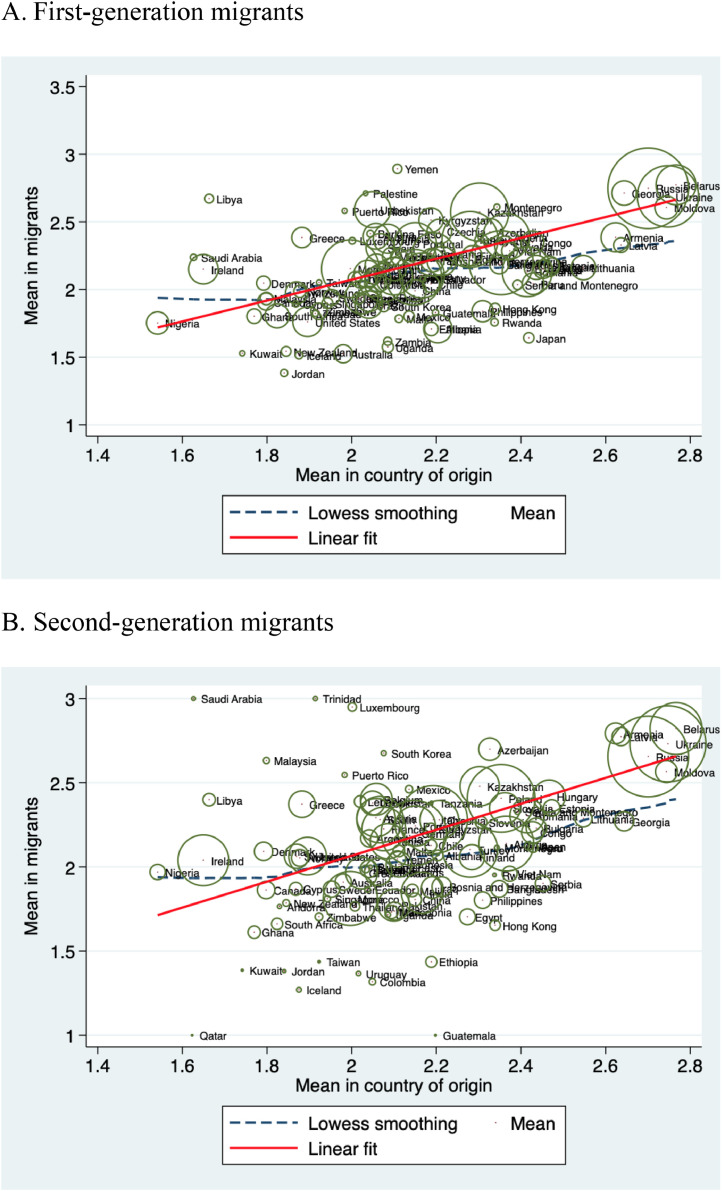自我评估健康的文化持久性:对第一代和第二代移民的研究。
IF 2.9
Q1 PUBLIC, ENVIRONMENTAL & OCCUPATIONAL HEALTH
引用次数: 0
摘要
目的:我们测量健康评估的文化持久性;即第一代(和第二代)移民的健康评估与其母国(及其父母)之间的联系。措施:我们使用来自30多个欧洲东道国和90多个输出国的个人数据记录,以及对移民时间和合法公民身份的控制。此外,我们利用广泛的样本国家来减弱选择偏差的存在。结果:我们的估计记录了健康自我评估的文化持久性的证据,这些证据在各种不同的规格中随年龄而变化。我们估计,派遣国自我报告的健康状况每发生一个标准差的变化,移民自我报告的健康状况就会增加约0.17个标准差。效应大小对居住国固定效应的包含以及对可观测值的选择和其他稳健性检查的存在很敏感。结论:自我报告健康的跨国比较应考虑个人在评估其健康时使用的文化参考点。本文章由计算机程序翻译,如有差异,请以英文原文为准。

Cultural persistence of self-assessed health: A study of first- and second-generation migrants
Objectives
We measure the cultural persistence of health assessments; namely the association between first (and second) generation migrants' health assessments and those of their home country (and that of their parents).
Measure
We use individual data records from over thirty host European countries and over ninety sending countries, as well as controls for migration timing and legal citizenship status. Furthermore, we leverage a wide range of sample countries to attenuate the presence of selection bias.
Results
Our estimates document evidence of cultural persistence of health self-assessments in a wide array of different specifications which vary with age. We estimate that a one standard deviation change in self-reported health in the sendning country is associated with an increase in migrants’ self-reported health of about 0.17 standard deviations. The effect size is sensitive to the inclusion of country of residence fixed effects as well as the presence of selection on observables and other robustness checks.
Conclusion
Cross-country comparisons of self-reported health should consider cultural reference points individuals use in assessing their health.
求助全文
通过发布文献求助,成功后即可免费获取论文全文。
去求助
来源期刊

Journal of Migration and Health
Social Sciences-Sociology and Political Science
CiteScore
5.70
自引率
8.70%
发文量
65
审稿时长
153 days
 求助内容:
求助内容: 应助结果提醒方式:
应助结果提醒方式:


